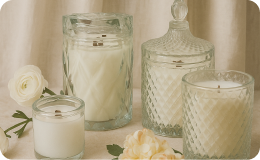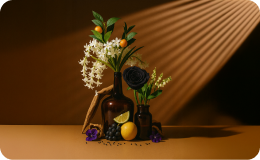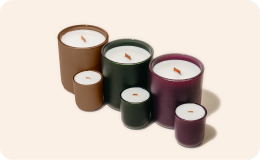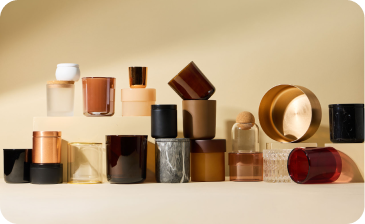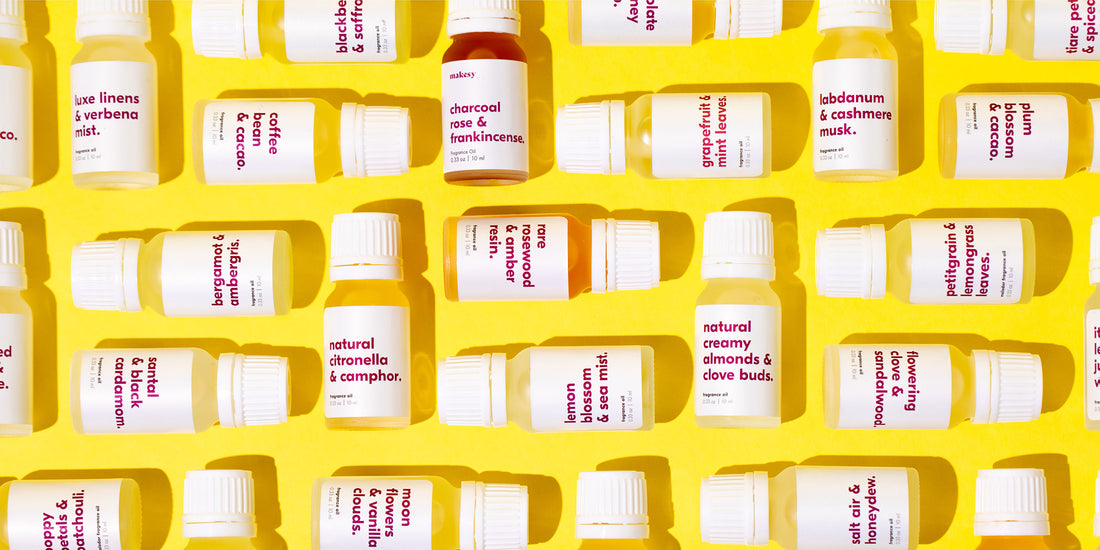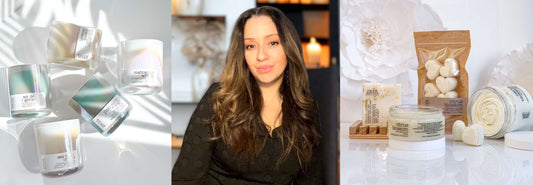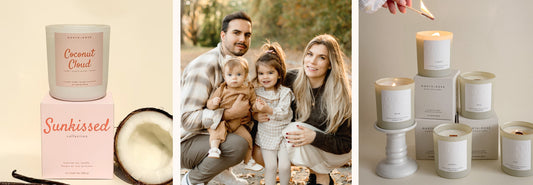What Type Of Fragrance Oil Should I Use?
There are quite a few fragrance buzzwords out there. If you’re new to the wonderful world of home fragrance, you may see terms like “essential oils” or “synthetics” bubbling up around your sphere. Not sure what the differences are? Don’t fret. We’re here to clarify for you.
Get ready to be a fragrance pro as we explain the main difference between essential oils, natural fragrance oils, and synthetic fragrance oils.
fragrance oil vs. essential oil, what's the difference?
With so many fragrance oil options available today (perfumers often work with up to 5,000 ingredients!), figuring out which one to use in your candles can be a daunting task.
It starts with knowing the difference between the three primary fragrance types and their respective benefits - essential oils, natural fragrance and isolates, and synthetic fragrance oils. Below we will define what each of these fragrance groups are, and when they are best used!
Let's start by understanding what types of materials exist:
essential oils
Essential oils are made from natural plant materials and they're extracted typically either through steam distillation or by pressing of the plant materials. Essential oils are completely natural, derived from natural ingredients and can be declared 100% natural and pure so long as there are no other ingredients in your essential oil.
natural isolates
This type of fragrance is made from natural isolates. You can make 100% natural fragrances by extracting isolates from essential oils, plant, and flower materials.
Using natural isolates is one of my favorite ways to explore fragrance and perfumery - when you use natural isolates, you can create fragrances that aren't necessarily found in nature but can create complex sophisticated notes by layering many natural isolates together. This allows you to create a fragrance that has top, middle, and base notes, and more depth than an essential oil. Y
ou can also still make the claim that your fragrance is a hundred percent natural when using only natural isolates.
natural derived fragrance
Naturally derived fragrance is made from natural materials that are extracted using a solvent like alcohol. For example, these aren't considered a hundred percent natural by most standards since they have been contaminated by solvent.
synthetic fragrance
There are many types of synthetic materials that are used in perfumery. In fact, there are anywhere from two thousand to five thousand different ingredients on a perfumers pallete at any given time - that's a lot to work with.
Synthetics are man-made and you can also create types of fragrances that just simply cannot be found in nature, for example the 'essence of ocean air' or an idea of a familiar scent that may not necessarily be naturally derived.
which fragrance oil is the best?
The answer is whichever you choose to use! You can use safe synthetic fragrances by ensuring that your fragrance oil is phthalate-free. All of makesy's fragrances are phthalate free and we offer 100% natural fragrance oils and synthetic fragrance oils, as well as essential oils.
Naturals and essential oils will sometimes have less fragrance throw as they’re structure isn’t as stable as synthetic oils. So when choosing your fragrances, be mindful of this and be sure to test a few fragrance percentages.
Essential oils may also sometimes alter in the heating process so be sure to test as well, because the fragrance may change in soap or candle applications.
Now that you know the difference between all of the different types of fragrance, you can decide which you'd like to use!
We love sharing your creations! Don’t forget to share your creations and tag @makesy on Facebook or Instagram for the chance to be featured!
Happy making!

